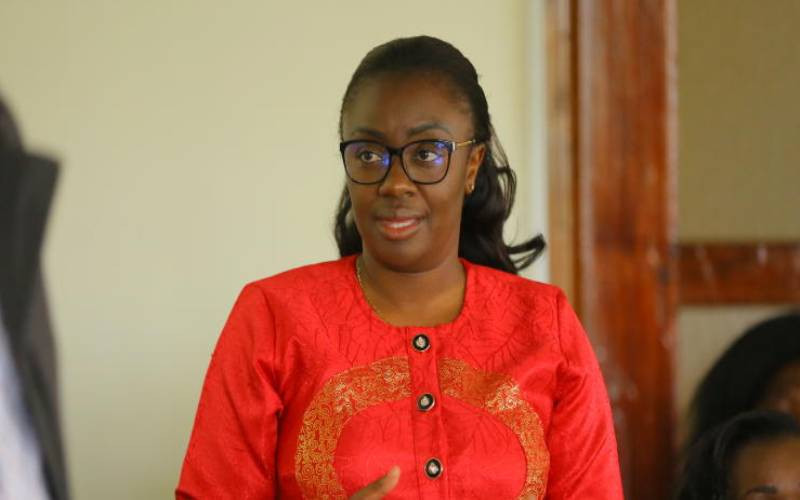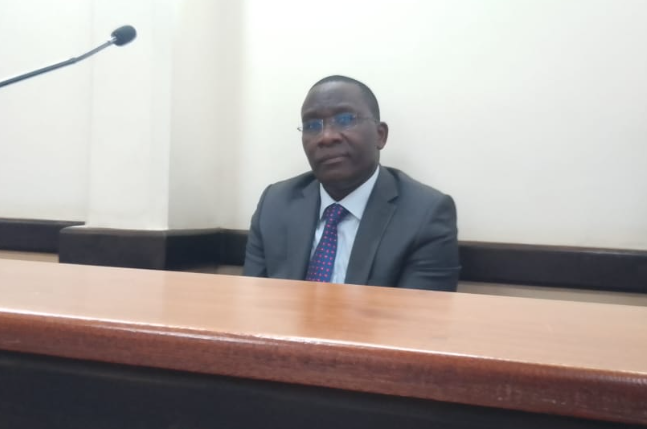The first time it happened, he told her it is a game. He fondled her and said it was their special moment they should secretly share when nobody was around.
She was nine years old. The stepfather who is a matatu driver was always home early. Her mother, a food vendor in Kawangware was always away.
“I was afraid, but he kept warning me that if anyone knew, he would kill my mother and something bad will happen to me,” she says.
With time, he became more daring. The evening when he went beyond touching and raped her, he told her it was because she was special. She cried afterwards, but he reminded her that she cannot tell anyone. Then vaginal itching started, followed by heavy bleeding.
“When she told her mother that she was having a discharge, he took a Bible and swore that he did not do it,” says the girl’s aunt.
They believed him. He continued to defile her as he had been doing even before the Covid-19 pandemic, and people had started noticing that she had changed.
“The teachers would tell us that she would get startled easily, and she barely concentrated in class,” says the girl’s aunt. When schools closed due to the pandemic, she went to visit her aunt, and it is then that she revealed what she was going through.
It is at Nairobi Women’s Hospital that they were hit with the reality of what the little girl had gone through. Vaginal infection, torn private parts, bleeding uterus, and heavy psychological torture were among the conditions she was treated for. The police arrested the man but he was released soon after.
“We were told cells are full, and because of coronavirus, they could not hold him,” says the girl’s aunt.
They now live in anxiety. The man hovers close, so the girl rarely leaves home. She takes a lot of medication, but her aunt says she prefers to sit alone, lost in her own thoughts.
“She is 10-years-old but has gone through so much. It is sad that the person who did it is free. We worry that he might harm her, so she never leaves the house. It is not the right way for a child to live,” says the aunt.
Hit her mother
Looking back, the aunt admits that the signs were all there.
The clinginess and refusal to go home whenever the girl visited relatives should have made them dig deeper. The man had instructed the girl never to visit people.
“He would turn violent and hit her mother whenever he found out my niece had visited us. One time, she wanted to spend the night at her grandmother’s home, and the man got so furious, she had to be taken home at night,” she says.
Psychologists say most abusers always alienate their victims from the public. Sylvanus Wambani, a counsellor, notes one of the earliest signs that a child is being sexually abused by someone close to them is when the person gets paranoid about the child interacting with adults.
“They fear that the child will reveal the abuse to other adults. Some of them even pull the children out of school because teachers are always the first to notice abuse in children,” he says.
Sadly, he says that most of the sexual abuse cases are perpetrated by people close to the child. Even more confounding, Wambani notes is the fact that families prefer out of court settlement cases of sexual abuse to be handled without the involvement of authorities.
He adds that other signs of abuse are the child secluding themselves or becoming clingy to people they feel might save them from the situation.
Martha Sunda, director of Childline Kenya, an organisation that works with the government to stop child abuse paints a grim picture on the number of children who report sexual abuse.
“Since the set up of the Child Helpline in Kenya, the highest reported form of child abuse was child neglect consistently. This narrative has changed with the onset of Covid-19. In this season, defilement cases have skyrocketed, accounting for at least 63 new cases reported every month. This is alarming,” she says.
Face stigma
According to the agency’s data in the last few months, 32 children of up to 5 years old, 71 aged between 6 and 10 years, and 277 children aged between 11 and 17 years were sexually abused. The number, she says, is higher since most children rarely report sexual abuse.
She urges teachers to encourage children, even when using online learning platforms, to report cases of abuse.
Data from the latest Violence Against Children report by the Ministry of Labour and Social Protection Services indicates that two-thirds of females who experienced childhood sexual violence are likely to be victims again before they turn 18.
Those who report are likely to face stigma. The girl’s aunt says she has to look for a new school for her niece.
“She says she does not want to go back to her former school, because when the man was arrested at home, some of her classmates saw, and word went round,” she says.
While launching the report in July, Labour and Social Protection Cabinet Secretary Simon Chelugui said sexual violence experienced by girls aged between 13 and 17 years has increased.
 The Standard Group Plc is a multi-media organization with investments in media platforms spanning newspaper print
operations, television, radio broadcasting, digital and online services. The Standard Group is recognized as a
leading multi-media house in Kenya with a key influence in matters of national and international interest.
The Standard Group Plc is a multi-media organization with investments in media platforms spanning newspaper print
operations, television, radio broadcasting, digital and online services. The Standard Group is recognized as a
leading multi-media house in Kenya with a key influence in matters of national and international interest.











